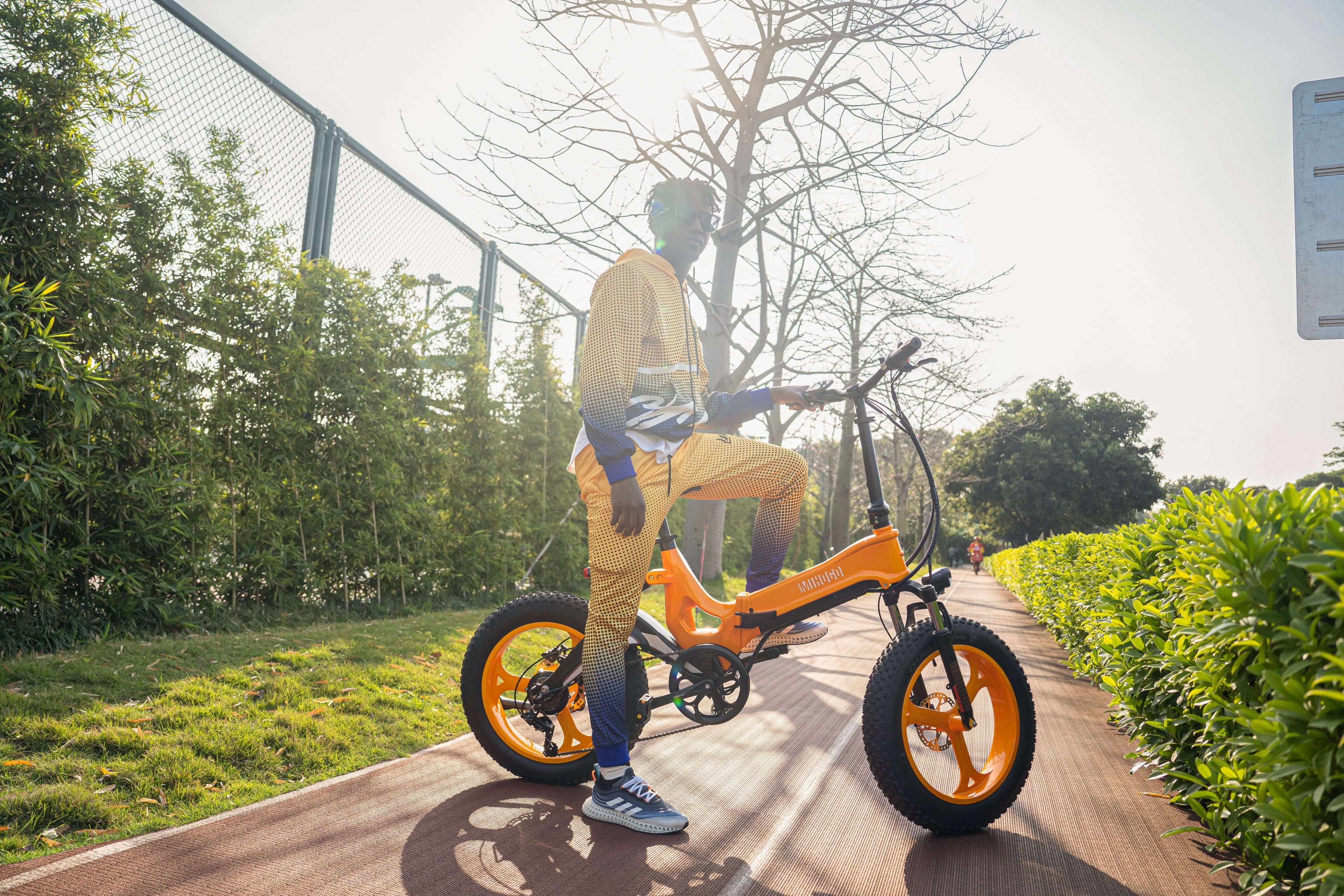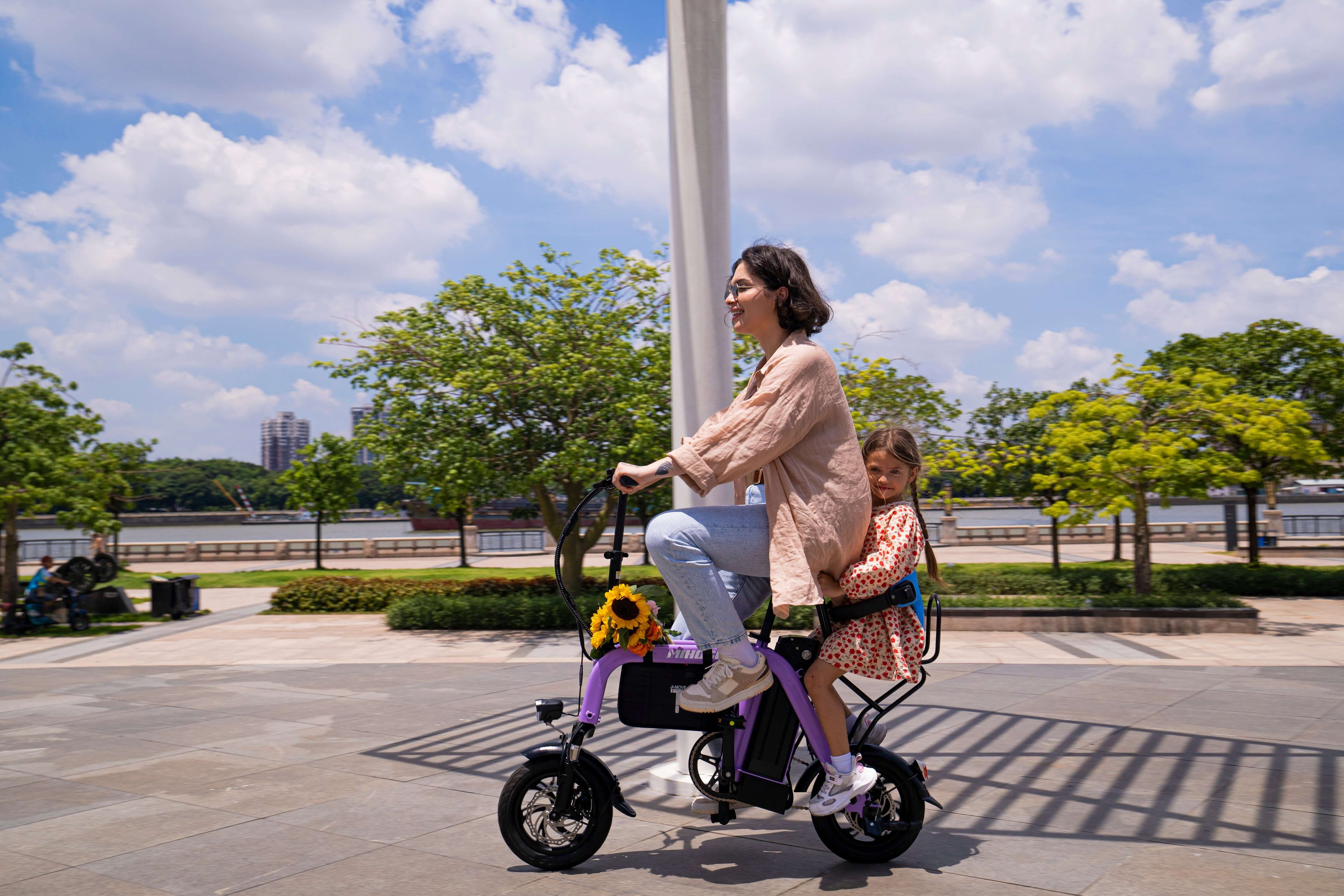Understanding the Three-Class E-Bike System
Before diving into city-specific regulations, it's essential to understand the national three-class e-bike classification system that most cities have adopted:
- Class 1: Pedal-assist only, maximum 20 mph, no throttle
- Class 2: Throttle-assisted, maximum 20 mph, can operate without pedaling
- Class 3: Pedal-assist only, maximum 28 mph, speedometer required
All Mihogo e-bikes comply with the 750W federal motor power limit, ensuring legal operation across all US cities.
New York City: Strictest Regulations in the Nation
Current Laws (2025)
New York City has some of the most restrictive e-bike laws in the United States. As of 2025, NYC allows Class 1 and Class 2 e-bikes, but Class 3 e-bikes are not permitted within the city limits. Additionally, a bill requiring all electric bikes and scooters to be licensed with the city is currently under consideration.
Key NYC Requirements:
- Age Restrictions: Minimum age of 16 to operate any e-bike
- Helmet Laws: Required for all Class 3 riders and anyone under 18
- Battery Safety: As of October 9, 2024, lithium batteries must comply with UL 2849, UL 2271, or EN 15194 safety standards
- Retailer Requirements: Retailers must provide operating manuals and red tags on charging cords indicating units should be unplugged when not in use
Mihogo Recommendations for NYC:
- MIHOGO RX 2.4 (Class 2, 500W, 23 mph): Perfect for NYC commuting with its folding design for apartment storage and throttle capability for stop-and-go traffic
- Mihogo Mini (Class 1, 350W, 21.9 mph): Compact and lightweight, ideal for navigating crowded streets and public transportation integration
Los Angeles: Car-Alternative Focus
California State Changes (2025)
California's new SB-1271 law, effective January 1, 2025, significantly impacts e-bike regulations statewide. The law includes:
- Throttle Restrictions: New classifications make many throttle-enabled bikes illegal if they exceed power levels mimicking mopeds
- Battery Certification: Starting January 1, 2026, all e-bike batteries must be certified by recognized testing laboratories
- Power Rating Clarification: Removes ambiguity by defining e-bikes as having motors that "do not exceed 750 watts of power"
LA-Specific Considerations:
- Heavy traffic makes Class 3 speeds advantageous
- Extensive bike lane network supports all e-bike classes
- Hills require powerful motors for comfortable commuting
Mihogo Recommendations for LA:
- Mihogo Air750 Max (750W, 25 mph, 121-mile range): Carbon fiber construction handles LA's varied terrain while providing extended range for long commutes
- MIHOGO ONE Utility (750W, 167-mile range): Perfect for car replacement with utility features for grocery runs and errands
Chicago: Midwestern Practicality
Illinois State Framework
Illinois positions itself as one of the most e-bike-friendly states in 2025, offering clear regulations and growing financial incentives, especially in Chicago. Key features include:
- Three-Class System: Full adoption of national standards
- Labeling Requirements: All e-bikes must carry permanent, visible labels stating the bike's class, motor wattage, and top assisted speed
- Trail Access: All classes may ride anywhere traditional bicycles are permitted on public roads and streets
Chicago-Specific Benefits:
- Extensive lakefront trail system
- Growing bike infrastructure
- Winter cycling considerations
Mihogo Recommendations for Chicago:
- MIHOGO ONE Utility (750W): Handles Chicago's flat terrain efficiently while providing cargo capacity for year-round commuting
- MIHOGO RX 2.4 (Folding, 500W): Indoor storage capability for Chicago's harsh winters
Seattle: Tech-Forward Regulations
Washington State Approach
Washington treats electric bikes much like traditional bicycles, requiring no registration, licensing, or insurance. Seattle has been particularly progressive:
- Trail Access: New policy allowing e-mobility devices on trail sections owned by Seattle Parks and Recreation ensures consistent regulations on Seattle's multi-use trails
- Class Distinctions: Clear separation of where each class can operate
- Future-Focused: Emphasis on sustainable transportation integration
Seattle-Specific Features:
- Significant elevation changes require powerful motors
- Rain protection considerations
- Tech industry commuter focus
Mihogo Recommendations for Seattle:
- Mihogo Air750 Max (750W, carbon fiber): Lightweight yet powerful for Seattle's steep hills, with weather-resistant features
- MIHOGO ONE Utility (167-mile range): Extended range handles longer suburban commutes common in tech industry
Denver: High-Altitude Considerations
Colorado's Progressive Stance
Colorado is one of the most proactive states in integrating e-bikes into sustainable transportation efforts. Denver specifically offers:
- Altitude Factors: Motor performance considerations at 5,280 feet elevation
- Year-Round Cycling: Infrastructure designed for four-season use
- Recreation Integration: Strong connection between commuting and recreational trail systems
Mihogo Recommendations for Denver:
- Mihogo Air750 Max (750W): Extra power compensates for altitude effects on battery performance
- MIHOGO ONE Utility (750W, 167-mile range): Handles both urban commuting and mountain recreation access
Miami: Coastal Urban Riding
Florida's Approach
Florida passed legislation in 2020 aligning with the 3-class model, with cities like Miami promoting e-bikes as part of green transit programs.
Miami-Specific Considerations:
- Flat terrain favors efficiency over power
- Saltwater corrosion protection needed
- Heat management for batteries
- Hurricane season storage requirements
Mihogo Recommendations for Miami:
- MIHOGO RX 2.4 (Folding, 500W): Easy indoor storage during hurricane season, sufficient power for flat terrain
- Mihogo Mini (350W, 62-mile range): Lightweight and efficient for beach town commuting
Portland: Bike Culture Capital
Oregon's Framework
Portland has long been America's cycling capital, with comprehensive e-bike integration:
- Infrastructure: Extensive protected bike lane network
- Culture: High acceptance of all cycling types
- Environmental Focus: Strong emphasis on car-alternative transportation
Mihogo Recommendations for Portland:
- Mihogo Air750 Max (Carbon fiber, 121-mile range): Appeals to Portland's performance-oriented cycling culture
- MIHOGO ONE Utility (Utility design): Perfect for Portland's cargo bike popularity and practical cycling approach
Key Urban E-Bike Compliance Tips
Battery Safety Standards
With increasing focus on lithium-ion battery safety:
- Look for UL 2271 or UL 2849 certifications
- Proper charging practices reduce fire risk
- Store batteries in temperature-controlled environments
Helmet Requirements by City
While requirements vary, safety best practices include:
- Always wear helmets regardless of local laws
- High-visibility clothing for urban traffic
- Lights and reflectors for night riding
Trail Access Maps
Research local trail systems before riding:
- Many cities offer digital maps showing e-bike access
- Class restrictions often apply to recreational trails
- Local park departments provide current information
Mihogo E-Bike City Suitability Guide
For Dense Urban Environments (NYC, SF, Boston):
- MIHOGO RX 2.4: Folding design, apartment-friendly, 40-mile range
- Mihogo Mini: Ultra-compact, easy public transport integration
For Car-Replacement Commuting (LA, Phoenix, Atlanta):
- MIHOGO ONE Utility: 167-mile range, cargo capacity, 750W power
- Mihogo Air750 Max: Premium performance, 121-mile range
For Hilly Cities (Seattle, Portland, San Francisco):
- Mihogo Air750 Max: Carbon fiber lightweight, 750W power for climbs
- MIHOGO ONE Utility: High torque for hill climbing with cargo
For Flat Urban Areas (Miami, Tampa, New Orleans):
- Mihogo Mini: Efficient 350W motor, 62-mile range
- MIHOGO RX 2.4: Balanced performance, folding convenience
2025 E-Bike Law Trends to Watch
Emerging Regulations
Cities are increasingly focusing on:
- Battery Safety: Universal certification requirements
- Registration Systems: Potential licensing for theft prevention
- Speed Limitations: City-specific speed limits in dense areas
- Parking Regulations: Designated e-bike parking zones
Technology Integration
Future compliance may include:
- Smart Locks: GPS tracking for theft prevention
- Speed Limiters: Geofenced speed controls in sensitive areas
- Digital Licensing: App-based registration systems
Staying Legal and Safe
Before You Ride
- Research Local Laws: City regulations can change frequently
- Check Trail Access: Use apps like TrailLink for current trail status
- Verify Insurance: Some cities require specific coverage
- Plan Charging: Know local charging station locations
Motor Vehicle Integration
Urban e-bike riding requires:
- Understanding traffic laws and right-of-way rules
- Proper lane positioning and signaling
- Awareness of vehicle blind spots
Emergency Preparedness
Urban e-bike emergencies may include:
- Flat tire repair in traffic
- Battery failure during commutes
- Weather protection strategies
Ready to find your perfect city e-bike? Explore Mihogo's complete collection and discover which model fits your urban adventure needs.








